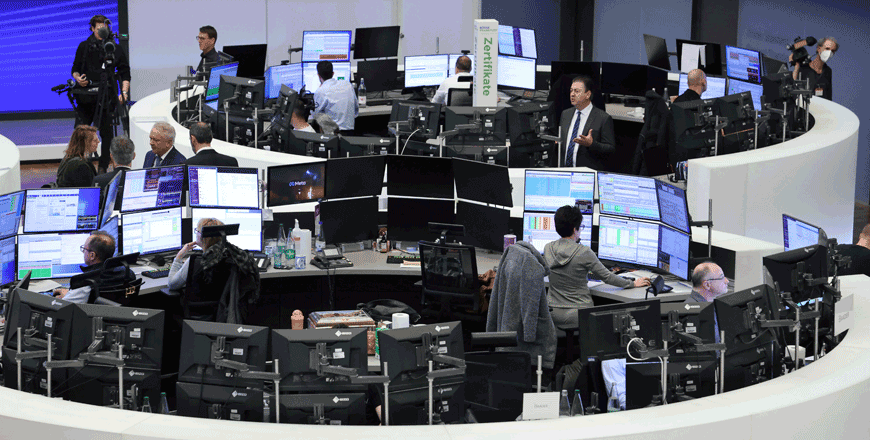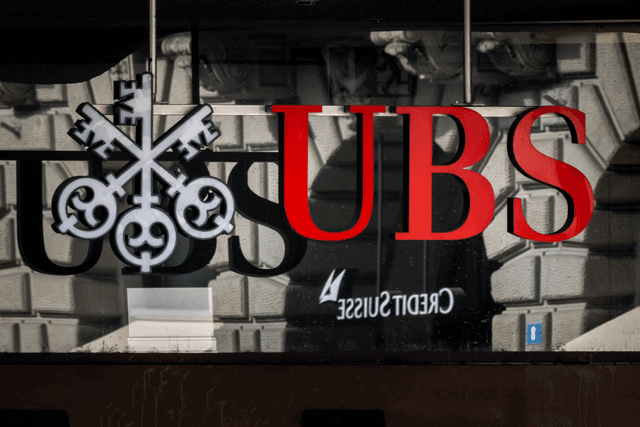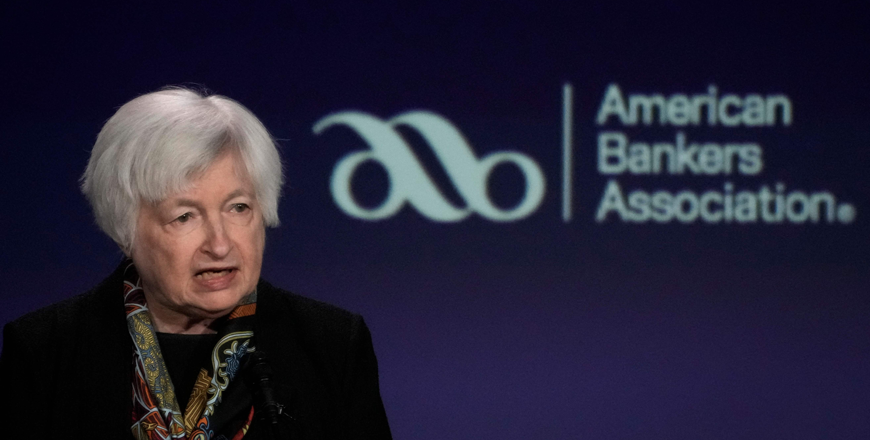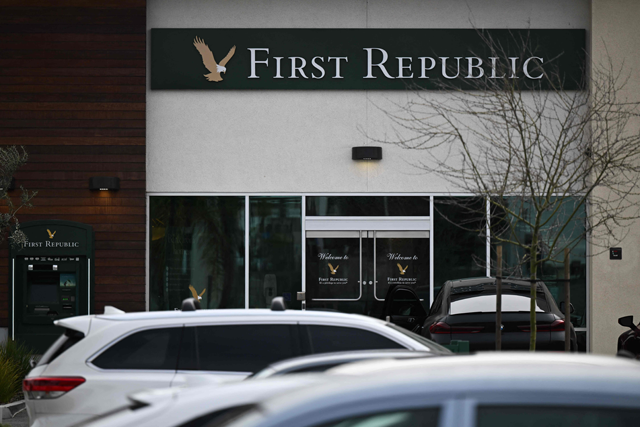You are here
Bank shares slide despite Credit Suisse buyout
By AFP - Mar 20,2023 - Last updated at Mar 20,2023

Traders work at the stock exchange in Frankfurt am Main, western Germany, on Monday (AFP photo)
LONDON — Global bank shares took another beating on Monday despite a UBS takeover of embattled Swiss rival Credit Suisse and actions by financial authorities aimed at calming investors fearing a broader crisis.
UBS agreed to take over Credit Suisse for $3 billion Swiss francs ($3.25 billion) in a government-brokered deal over the weekend following days of market upheaval over the health of the banking sector.
Hours later, the US Federal Reserve (Fed) and other major central banks announced a coordinated effort to improve banks' access to liquidity.
While shares in UBS and other banks sank on Monday, the broader stock markets fluctuated, with Asia closing in the red while European indices rose after opening lower as investors pore over details of the deal.
The Credit Suisse deal "may have some effect in reducing anxiety levels in financial markets, but it may only be short-lived, with traders left wondering which bank could be next to hit the headlines for all the wrong reasons", said Tim Waterer, analyst at Kohle Capital Markets.
Shares in Credit Suisse and lenders worldwide had already sunk last week over concerns of contagion to the rest of the sector from the failure of US regional banks.
The Swiss bank had already been shaken by other scandals, including its exposure to the 2021 collapses of investment firms Archegos and Greensill.
One concern from Sunday's deal was the effect it could have on the high-risk debt market as holders of such bonds at Credit Suisse, known as AT1, will lose $17.3 billion after authorities required that they be written off.
AT1 bonds, which offer high returns but also carry high risks, were created following the 2008 global financial crisis to put the burden of losses on investors instead of taxpayers.
"Sentiment vis-a-vis the AT1 bond asset class will likely remain weak following last night's deal," said Stephen Innes, managing partner at SPI Asset Management.
Shares in UBS were down more than 4 per cent after falling as much as 12 per cent earlier in the day. Credit Suisse shares were down almost 60 per cent and stood around the deal's 0.76 franc share price.
Authorities sought to reassure the markets.
The European Central Bank on Monday described the continent's financial system as "resilient" with sufficient liquidity.
EU Economy Commissioner Paolo Gentiloni said the reaction of "monetary authorities has been strong and rapid".
Oil down
Oil prices tumbled on fears the fallout would slow the global economy, which was already struggling to avoid recession as inflation remains elevated.
"If banks face tighter regulation and pressure to further improve their capital ratios, it could suggest that many consumers and businesses will find it harder to borrow money and that could feed into weaker economic activity," Russ Mould, investment director at AJ Bell, noted on Monday.
Gold, seen as a safe store of value in times of economic turmoil, topped $2,000 per ounce for the first time in more than a year Monday before paring down gains.
It was the highest level since Russia launched its invasion of Ukraine just over one year ago.
"How much further gold can gain will largely be determined by how many more financial institutions have to be bailed out or fail in the coming days," noted Rupert Rowling, analyst at trading group Kinesis.
Fed focus
The market volatility came ahead of the Fed's policy meeting this week, with speculation mounting that it will pause its interest rate hikes to provide some stability to markets.
The more dovish Fed outlook weighed on the dollar.
The collapse this month of US regional lenders Silicon Valley Bank, Signature Bank and Silvergate sparked fears of contagion as worried customers withdrew cash.
It led US authorities last week to promise support for other lenders and depositors, while Wall Street titans including JP Morgan, Bank of America and Citigroup pledged to inject $30 billion into under-pressure lender First Republic Bank.
"Investors are likely keeping a look over their shoulder for the next disaster in a high-interest rate [and inflationary] environment, so at best we might see markets recover some of last week's losses," said analyst Matt Simpson at City Index.
Related Articles
ZURICH — UBS was up against the clock Sunday in talks to finalise a mammoth takeover of its troubled rival Swiss bank Credit Suisse and reas
WASHINGTON — The US banking sector is "stabilising" after the recent failures of Silicon Valley Bank (SVB) and Signature Bank rattled the in
PARIS — The world's central banks are juggling whether to raise interest rates further in order to reduce inflation, and with the banking se



















